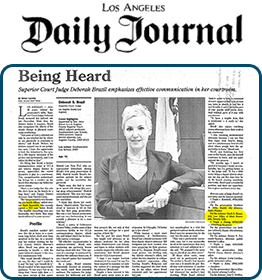The biggest mistake that’s made in blood draw cases is when defense attorneys are not zealously advocating on behalf of their clients by getting the supporting documentation necessary to properly analyze and understand what’s going on in a blood case. The biggest problem is that blood cases are not fought hard enough and that defense attorneys don’t have the appropriate training to properly attack these cases and show how fraught with error they are. First, you have to understand what’s going on in a blood case.
Second, you’ve got to get the supporting documentation to be able to analyze it. One of the biggest problems is a lack of knowledge by the defense attorneys as well as prosecutors on what actually exists and what you need to see to properly evaluate the trustworthiness of a blood sample.
If somebody walks in with one piece of paper and says, “Here is a piece of paper with a number on it,” and everybody agrees that that’s the number and that’s trustworthy, we’ve got some big problems. You know you wouldn’t put a life-changing decision on one single number, on one single piece of paper. You need more, and that information is out there for a blood analysis. Literally dozens if not hundreds of pages of documentation exist just for that one blood sample.
If the Blood Draw Is Flawed, Can That Help My Case?
If there is a flaw, such as a problem with the chain of custody, with the pre-analytical condition of the sample, or analytical error, it can definitely affect the case. Keep in mind that it’s not just the blood; there are also going to be driving tests or possibly field sobriety tests. So, there is more than one aspect to a case. You can’t say that if there is a problem with the blood, the case is going to get dismissed; however, there is a lot more room for flexibility in negotiating a reduction if not a dismissal where we find problems with the blood.
You may have 50 samples going through one run on an automatic carousel. Probably every single run has some issues that are noted that come up as errors that should not be there, and you need to know where to look to find those errors. Then you need to bring that to the attention of the prosecutor and explain to them what it means and why the charges should be reduced.
For example, I recently had a case where I found out that the blood sample that was tested and supposedly my client’s blood had a different police report number on it. There is real question as to whether that is or is not my client’s blood when the police report number on the blood sample doesn’t match the police report number in my client’s case. You need to be able to find that stuff and bring it to the attention of the judge, the prosecutor and the jury.
What Would You Say Is the Most Difficult Aspect of Blood Draw Cases?
The most difficult aspect of a blood draw case is bringing a prosecutor up to speed on what the problems are. A lot of times when you are dealing with prosecutors on DUI cases, they are relatively new prosecutors who don’t have the experience or the knowledge of the science of a DUI case to understand and really grasp what’s going on. Many times, if you’re dealing with, say, a Los Angeles district attorney’s office, they may be very good attorneys or they may be very new attorneys in a misdemeanor rotation.
Since most DUI cases are misdemeanors, you’re dealing with a relatively new attorney for the prosecution. Maybe they have been with the DA’s office for three months or six months or maybe a year and they haven’t come across that many blood cases and the blood cases that they have dealt with have not been properly defended. They don’t have the knowledge of what is available. So, the most difficult part is bringing a prosecutor up to speed so they can understand the science and what’s going on in the crime lab.
What Are Some Things That a Potential Client Should Ask an Attorney?
If someone’s looking to find the right attorney for a DUI blood case, you should ask the attorney what their training and experience is in dealing with blood cases in particular. It’s important that an attorney has experience and has been doing DUI defense work for a number of years but also that there is focus on DUI cases. In particular, you want the person to be knowledgeable about blood analysis and see whether that person has taken any training courses – medical training courses or legal training courses – specific to blood analysis.
For more information on Mistakes in Blood Draw Cases, a free initial consultation is your next best step. Get the information and legal answers you’re seeking by calling (310) 424-3145 today.






 Personal Attention
Personal Attention Every criminal case is unique and no attorney can guarantee the outcome of a case. The information on this site is legal advertising and for general information only. Using this site, requesting books, information, consultations or communicating with Attorney Rosenfeld through its site does not form an attorney/client relationship.
Every criminal case is unique and no attorney can guarantee the outcome of a case. The information on this site is legal advertising and for general information only. Using this site, requesting books, information, consultations or communicating with Attorney Rosenfeld through its site does not form an attorney/client relationship.








